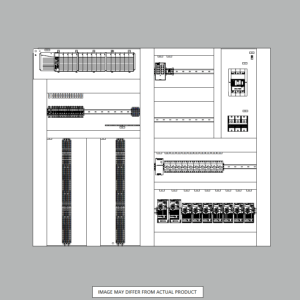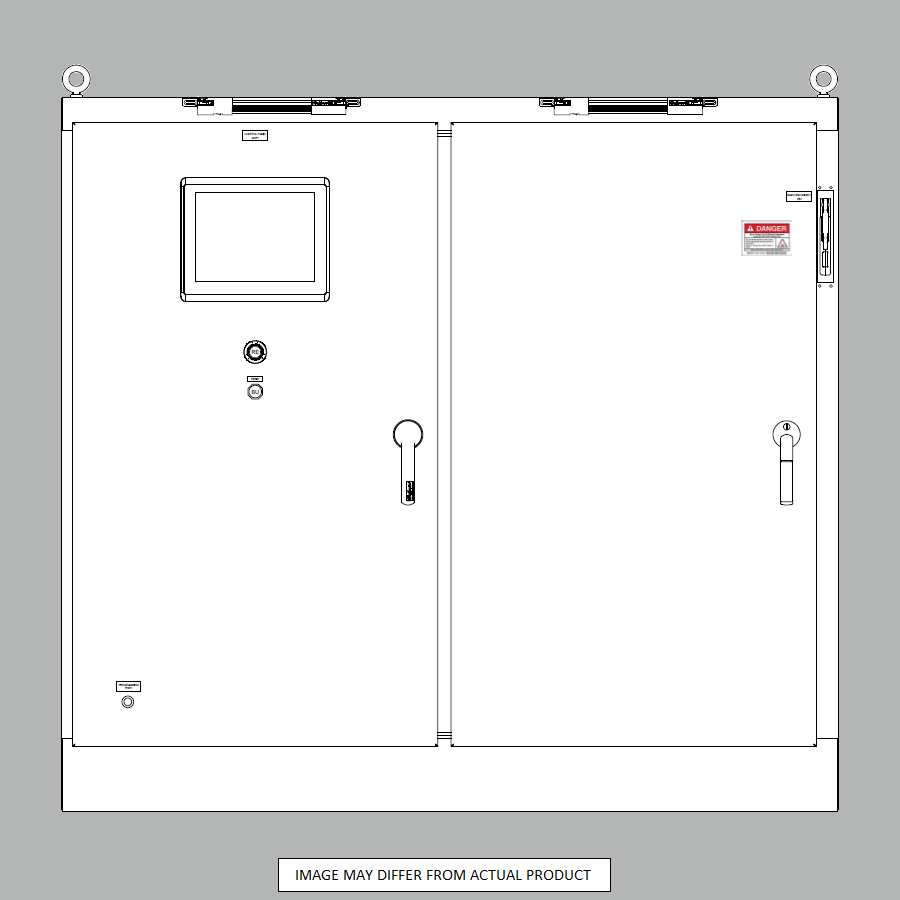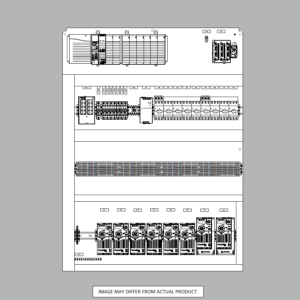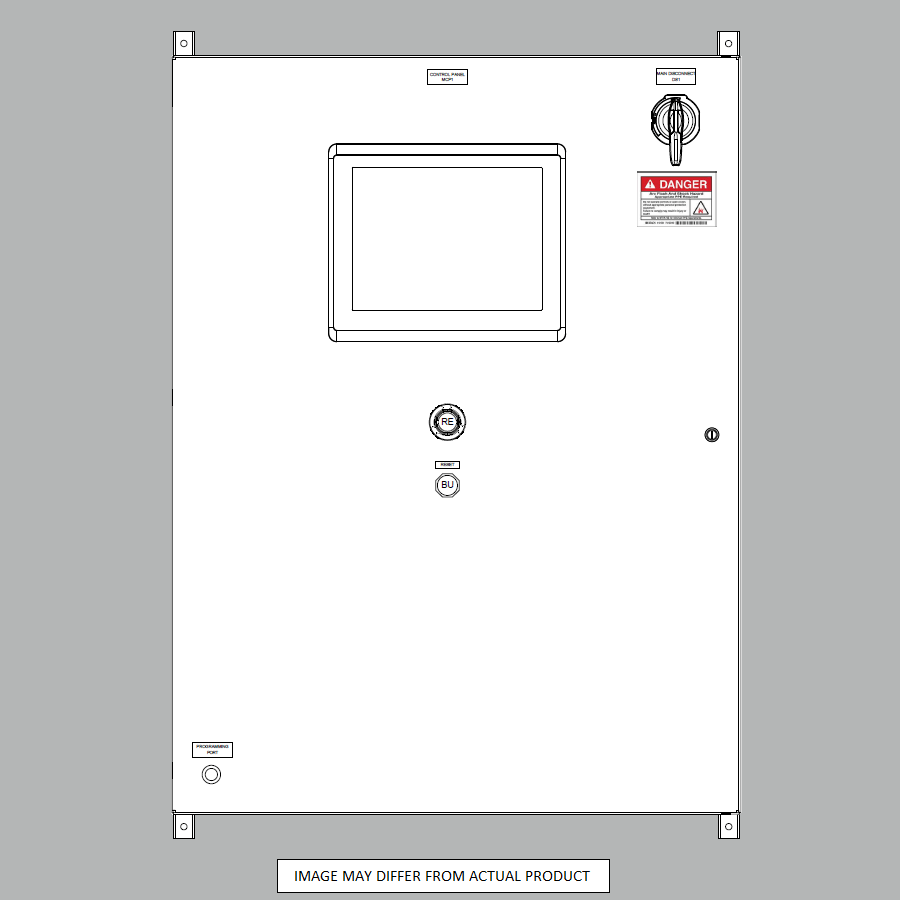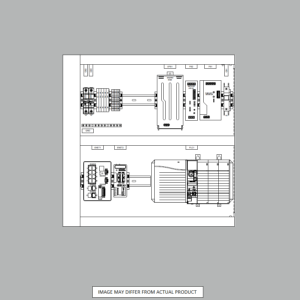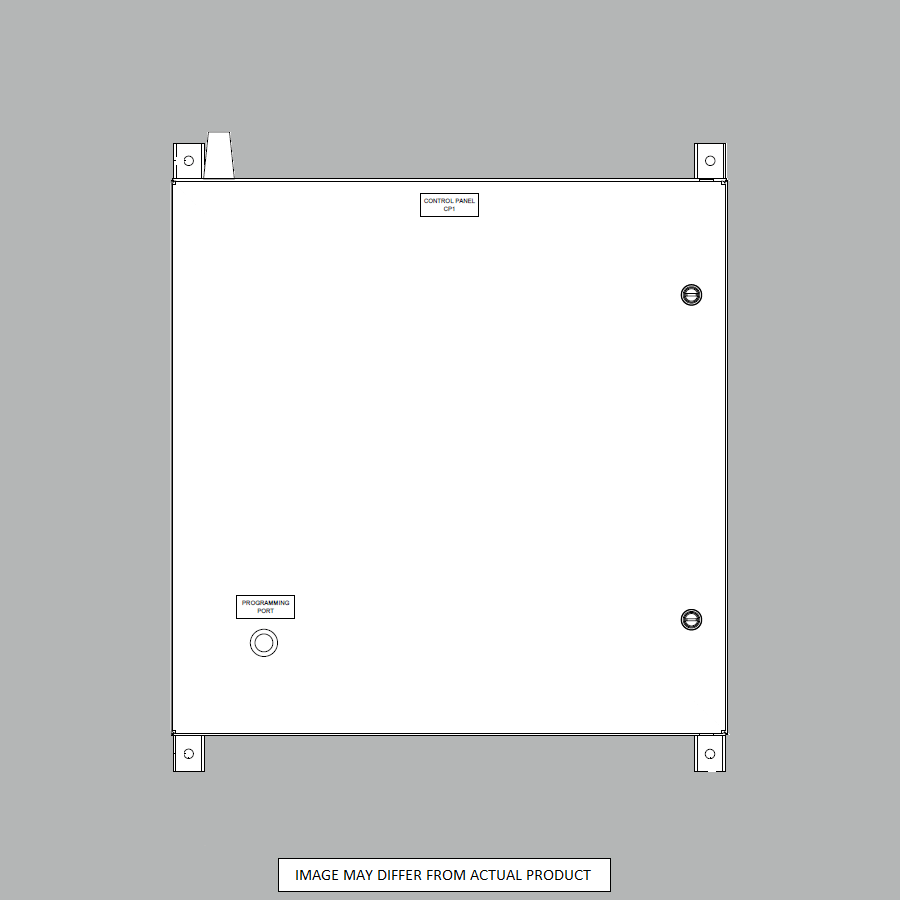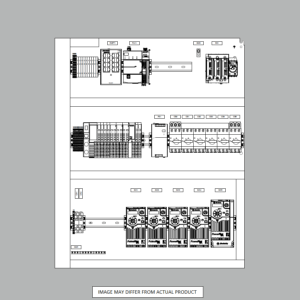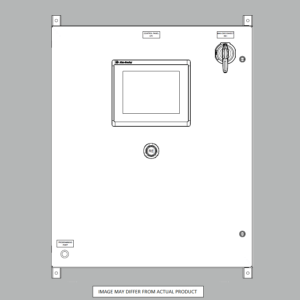Closed-Loop Control in the Chemical Industry: An Overview
In the ever-evolving landscape of chemical manufacturing, precision and efficiency are paramount. Enter closed-loop control systems – the unsung heroes revolutionizing how we manage and optimize chemical processes. This article dives deep into the world of closed-loop control, exploring its transformative impact on the chemical industry.
Are you ready to unlock the secrets of enhanced productivity, improved safety, and sustainable operations? Let’s embark on a journey to discover:
- How closed-loop control systems work and why they’re a game-changer for chemical processes
- Real-world applications that are reshaping the industry landscape
- The cutting-edge technologies propelling closed-loop control into the future
Understanding Closed-Loop Control Systems
Control Theory and Feedback Mechanisms
At the heart of closed-loop control lies a fundamental concept: feedback. Imagine you’re driving a car. You constantly adjust your steering based on what you see on the road – that’s feedback in action. In the chemical industry, this principle is applied on a grand scale.
Control theory provides the mathematical framework for managing complex systems. It’s the science of manipulating the behavior of dynamic systems, ensuring they perform as desired. In chemical processes, this translates to maintaining optimal conditions for reactions, separations, and other operations.
Feedback mechanisms are the eyes and ears of a closed-loop control system. They continuously monitor process variables like temperature, pressure, and flow rates. This real-time data is then used to make adjustments, keeping the process on track and within specified parameters.
Components of a Closed-Loop Control System
A closed-loop control system is like a well-oiled machine, with each part playing a crucial role:
- Sensors: These are the system’s sensory organs, measuring variables like temperature, pressure, or pH. They convert physical phenomena into electrical signals that the controller can understand.
- Controllers: The brain of the operation, controllers process the information from sensors and decide on the necessary adjustments. They use complex algorithms to determine the best course of action.
- Actuators: These are the muscles of the system. Actuators carry out the controller’s commands, adjusting valves, pumps, or heaters to maintain the desired process conditions.
- Set Point: This is the target value for the controlled variable. For example, in a reactor, the set point might be a specific temperature or pressure.
- Process: The chemical operation being controlled, such as a reaction, distillation, or filtration.
Closed-Loop vs. Open-Loop Control
To truly appreciate closed-loop control, let’s contrast it with its simpler cousin, open-loop control:
Open-loop control is like baking a cake with a preset oven temperature and time, regardless of how the cake is actually baking. You set the parameters at the start and hope for the best.
Closed-loop control, on the other hand, is like having a master chef constantly checking the cake, adjusting the temperature and time based on how it’s progressing. It’s dynamic, responsive, and far more likely to produce consistently excellent results.
In the chemical industry, where precision can mean the difference between a successful batch and a costly mistake, closed-loop control offers several advantages:
- Accuracy: Continuous monitoring and adjustment lead to more precise control of process variables.
- Stability: The system can quickly respond to disturbances, maintaining stable operating conditions.
- Flexibility: Closed-loop systems can adapt to changing conditions or setpoints more easily.
- Efficiency: By optimizing process conditions in real-time, closed-loop control often leads to energy savings and reduced waste.
Applications of Closed-Loop Control in the Chemical Industry
Process Optimization
Closed-loop control systems are the unsung heroes of process optimization in the chemical industry. They work tirelessly to maintain ideal operating conditions, resulting in:
- Improved product quality: By keeping process variables within tight tolerances, closed-loop control ensures consistent product characteristics batch after batch.
- Reduced waste: Precise control means fewer off-spec products and less raw material waste.
- Increased throughput: Optimized processes often run faster and more efficiently, boosting overall production capacity.
Safety Enhancement
In an industry where safety is paramount, closed-loop control systems act as vigilant guardians:
- Preventing runaway reactions: Temperature control loops can quickly detect and respond to unexpected temperature rises, averting potentially dangerous situations.
- Leak detection: Pressure and flow control loops can identify deviations that might indicate leaks, triggering alarms or automatic shutdowns.
- Atmosphere monitoring: In areas where toxic or flammable gases might be present, closed-loop systems can continuously monitor air quality and activate ventilation systems as needed.
Energy Efficiency
As industries worldwide grapple with rising energy costs and environmental concerns, closed-loop control offers a powerful solution:
- Optimized heating and cooling: By precisely controlling temperatures, these systems minimize energy waste in heating and cooling operations.
- Efficient pumping: Flow control loops ensure pumps operate at their most efficient points, reducing electricity consumption.
- Smart power management: In large plants, closed-loop control can help balance power loads, avoiding peak demand charges and optimizing overall energy use.
Environmental Impact Reduction
Closed-loop control is a key ally in the chemical industry’s quest for sustainability:
- Emissions control: By optimizing combustion processes and scrubber operations, these systems help minimize air pollutant emissions.
- Wastewater treatment: Closed-loop control ensures wastewater treatment plants operate at peak efficiency, improving water quality and reducing environmental impact.
- Resource conservation: By minimizing waste and optimizing raw material use, closed-loop control contributes to resource conservation efforts.
Specific Examples of Closed-Loop Control Implementation
Let’s dive into some concrete examples of how closed-loop control is applied in chemical processes:
- Temperature Control in Reactors
- Sensor: Thermocouple or RTD (Resistance Temperature Detector)
- Controller: PID (Proportional-Integral-Derivative) controller
- Actuator: Control valve on steam or cooling water line
- Process: The controller continuously compares the measured temperature to the setpoint. If there’s a deviation, it adjusts the steam or cooling water flow to bring the temperature back to the desired level.
- Flow Control in Pipelines
- Sensor: Flow meter (e.g., magnetic, ultrasonic, or Coriolis)
- Controller: PID controller
- Actuator: Control valve
- Process: The flow rate is constantly measured and compared to the setpoint. The controller adjusts the valve position to maintain the desired flow rate, compensating for changes in pressure or fluid properties.
- Level Control in Tanks
- Sensor: Level transmitter (e.g., radar, ultrasonic, or pressure-based)
- Controller: PID controller
- Actuator: Control valve on inlet or outlet line
- Process: The level is continuously monitored. If it deviates from the setpoint, the controller adjusts the inlet or outlet flow to bring the level back to the desired range.
- Pressure Control in Vessels
- Sensor: Pressure transmitter
- Controller: PID controller
- Actuator: Control valve on vent or feed line
- Process: The pressure is constantly measured and compared to the setpoint. The controller adjusts the valve position to maintain the desired pressure, either by venting excess pressure or regulating the feed rate.
These examples illustrate the versatility and precision of closed-loop control in managing diverse chemical processes. By continuously monitoring and adjusting critical parameters, these systems ensure optimal performance, safety, and efficiency across a wide range of operations.
Advancements in Closed-Loop Control Technology
The world of closed-loop control is not standing still. Exciting new technologies are pushing the boundaries of what’s possible:
Machine Learning and AI
Artificial intelligence is breathing new life into closed-loop control systems:
- Predictive maintenance: AI algorithms can analyze sensor data to predict equipment failures before they occur, reducing downtime and maintenance costs.
- Adaptive control: Machine learning models can continuously optimize control parameters based on changing process conditions, going beyond traditional PID control.
- Anomaly detection: AI can identify subtle patterns in process data that might indicate emerging issues, allowing for proactive intervention.
Industrial Internet of Things (IIoT)
The IIoT is creating a more connected and intelligent control environment:
- Wireless sensors: Battery-powered wireless sensors can now be deployed in hard-to-reach areas, providing more comprehensive process monitoring.
- Edge computing: Powerful processors at the edge of the network can perform local data analysis, reducing latency and network load.
- Cloud integration: Cloud platforms enable remote monitoring, data storage, and advanced analytics, facilitating collaboration and decision-making across global operations.
Distributed Control Systems (DCS)
Modern DCS platforms are evolving to meet the demands of increasingly complex chemical operations:
- Unified architecture: Today’s DCS systems integrate process control, safety systems, and asset management in a single platform, improving coordination and reducing complexity.
- Advanced process control: DCS platforms now incorporate model predictive control and other advanced algorithms, enabling more sophisticated optimization strategies.
- Virtualization: Virtual controllers and workstations increase system flexibility and reduce hardware costs.
Benefits and Challenges of Implementing Closed-Loop Control
Benefits
The advantages of closed-loop control in the chemical industry are numerous and significant:
- Improved product quality: Precise control leads to more consistent product characteristics and fewer off-spec batches.
- Enhanced safety: Rapid detection and response to abnormal conditions reduce the risk of accidents and environmental incidents.
- Increased efficiency: Optimized processes consume less energy and raw materials, boosting overall productivity.
- Reduced environmental impact: Better control means fewer emissions, less waste, and more sustainable operations.
- Cost savings: While initial investment may be high, the long-term savings in energy, materials, and reduced downtime often result in attractive ROI.
Challenges
Implementing closed-loop control is not without its hurdles:
- Complexity: Designing and tuning effective control systems requires specialized knowledge and skills.
- Initial costs: The upfront investment in sensors, controllers, and actuators can be substantial.
- Integration: Retrofitting existing plants with closed-loop control can be challenging, especially in older facilities.
- Maintenance: Advanced control systems require ongoing maintenance and calibration to ensure optimal performance.
- Training: Operators and technicians need training to effectively use and troubleshoot these systems.
Future Trends in Closed-Loop Control for the Chemical Industry
As we look to the horizon, several exciting trends are shaping the future of closed-loop control:
Increased Adoption of AI and Machine Learning
- Self-optimizing systems: AI-powered control systems will continuously learn and adapt, optimizing processes without human intervention.
- Digital twins: Highly accurate virtual models of entire plants will enable advanced simulation and optimization strategies.
- Natural language interfaces: Operators will interact with control systems using voice commands and natural language queries.
Integration with Cloud Computing
- Global optimization: Cloud-based platforms will enable optimization across multiple plants and even entire supply chains.
- Collaborative control: Engineers from around the world will be able to collaborate on process optimization in real-time.
- Big data analytics: Cloud computing will facilitate the analysis of vast amounts of historical process data, uncovering new insights and optimization opportunities.
Focus on Sustainability and Circular Economy
- Closed-loop manufacturing: Control systems will play a crucial role in implementing circular economy principles, minimizing waste and maximizing resource reuse.
- Energy transition: Advanced control strategies will help chemical plants integrate renewable energy sources and adapt to fluctuating energy availability.
- Carbon capture and utilization: Closed-loop control will be essential in managing emerging technologies for capturing and utilizing CO2 emissions.
Conclusion
Closed-loop control has emerged as a cornerstone of modern chemical manufacturing, driving unprecedented levels of efficiency, safety, and sustainability. As we’ve explored, these systems touch every aspect of chemical processes, from maintaining precise reactor conditions to optimizing entire plant operations.
The future of closed-loop control is bright, with AI, cloud computing, and sustainability initiatives pushing the boundaries of what’s possible. For chemical companies looking to stay competitive in an ever-evolving landscape, embracing and mastering closed-loop control is not just an option – it’s a necessity.
Are you ready to take your chemical processes to the next level? Don’t let outdated control systems hold you back. Automation Ready Panels offers cutting-edge solutions to bring the power of closed-loop control to your operations. Our expert team can design, implement, and optimize control systems tailored to your unique needs. From simple PID loops to advanced AI-powered control strategies, we have the expertise to transform your processes.
Take the first step towards a more efficient, safe, and sustainable future. Contact Automation Ready Panels today to discover how our closed-loop control solutions can revolutionize your chemical operations. Let’s work together to unlock the full potential of your processes and drive your business forward in the age of smart manufacturing.
-
Large Process Automation: Panelview 5000, ControlLogix 5580
$24,073.00 Select options -
Small Process Automation: Panelview 5000, ControlLogix 5580
$20,321.00 Select options -
Small Process Automation: ControlLogix 5580, UPS Battery Backup, Cellular Modem
$18,999.00 Select options -
Advanced Automation: Panelview 5000, Safety CompactLogix 5380
$10,269.00 Select options


